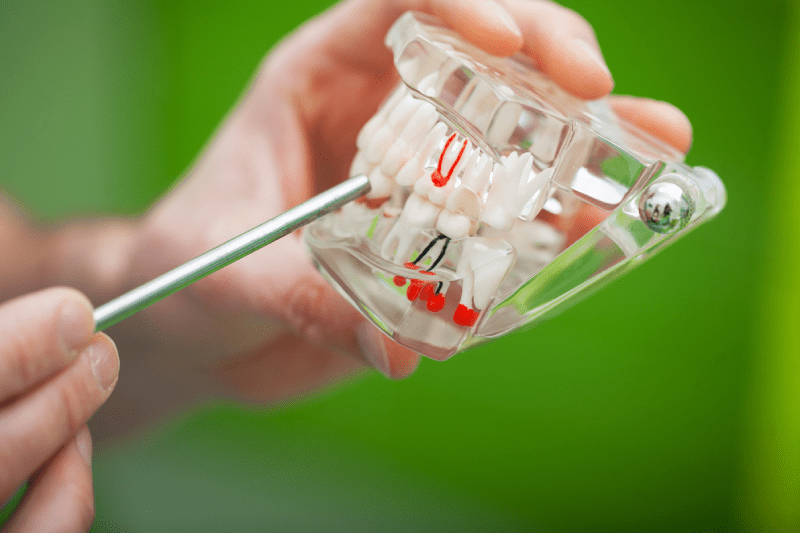What Is a Dental Implant and Why Is It Necessary?
A dental implant is an artificial tooth root made of titanium, surgically placed into the jawbone to replace missing teeth. It fuses with the jawbone, creating a strong foundation on which a crown, bridge, or denture can be placed. Dental implants are used to restore chewing function, speech, and facial aesthetics in individuals who have lost teeth. They are often preferred because they can replace a single tooth without harming adjacent teeth or offer a more stable and permanent solution compared to traditional dentures.
How Much Do Dental Implants Cost in the Netherlands?
The cost of dental implants in the Netherlands varies significantly depending on several factors. On average, the cost of a single dental implant can range from 1,500 to 3,500 Euros. This price typically includes the surgical procedure, the implant itself, and the crown placed on it. However, factors such as the condition of the jawbone, the brand of the implant used, the clinic’s location, and the dentist’s experience affect the total cost. Prices can be higher in large cities and luxury clinics.
Why Are Implant Prices High in the Netherlands?
The high cost of dental implants in the Netherlands is primarily due to the country’s high general living standards and business expenses. High salaries, clinic rents, investments in modern technology and equipment, high taxes, and strict health standards directly influence these costs. Additionally, Dutch dentists often receive international training and use the latest techniques, which increases the quality of service while also driving up prices.
Is Implant Treatment Covered by Insurance?
In the Netherlands, basic health insurance generally does not cover major dental procedures like dental implants. However, individuals with a comprehensive supplementary dental insurance package may be able to reclaim a portion of the implant cost. Insurance companies usually set a specific percentage or an annual limit for implants. Therefore, it is important to learn the details of your insurance policy and clarify how much will be covered before starting the treatment.
How Long Does Implant Application Take?
The dental implant procedure usually consists of several stages and can take a few months in total. In the first stage, the implant is placed into the jawbone and is expected to fuse with the bone. This process is called “osseointegration” and typically takes 3 to 6 months. In the second stage, a prosthesis or crown is placed on the implant. Several appointments are required for each stage. In some cases, a single-session implant can also be applied, but this depends on the bone having sufficient density.
How Much Does a Single Dental Implant Cost?
The cost of a single dental implant varies depending on the implant brand and material. There are many different implant brands on the market, and their prices vary based on their quality, warranty periods, and research and development investments. High-quality brands commonly used in the Netherlands, such as Straumann and Nobel Biocare, are more expensive than other brands. These brands are preferred because they offer long-lasting and reliable results.
How Much Does a Full-Mouth Implant Treatment Cost?
The cost of a full-mouth implant treatment is quite high as it requires a large number of implants and crowns. This cost is usually applied with concepts like “All-on-4” or “All-on-6.” In these concepts, four or six implants are placed in an entire jaw, and a full prosthesis is fixed on them. The cost of such a treatment can reach tens of thousands of Euros. This cost includes the implants, as well as the surgical operation, the prosthesis, and all additional appointments.

Is Bone Grafting Included in the Cost?
If there is insufficient jawbone volume and density for the dental implant procedure, a bone graft (bone powder) application may be necessary. This procedure is an additional surgical step and is not included in the implant cost. The cost of a bone graft varies depending on the type of material used and the size of the graft. It generally adds an extra cost of a few hundred to a thousand Euros and can be done before or during the same session as the implant placement.
Is a Sinus Lifting Procedure Necessary?
In cases where an implant needs to be placed in the upper jaw, the sinus cavity may not leave enough bone volume. In this situation, a surgical procedure called sinus lifting is performed. With this procedure, the sinus membrane is lifted, and bone graft is placed in the space beneath it. This provides sufficient bone volume for the implant to be safely placed. This procedure also creates an additional cost to the implant price and can extend the total treatment time.
Is Implant Treatment Painful?
Since dental implant treatment is performed under local anesthesia, no pain is felt during the procedure. Patients may only feel a sensation of pressure or vibration during the procedure. After the anesthesia wears off, there may be slight pain or discomfort, but this usually subsides on its own within a few days and can be easily controlled with painkillers. The implant operation may be less painful than a tooth extraction.
How Safe Is Implant Treatment?
Dental implant treatment is a very safe procedure when performed by a specialist surgeon. The success rate is over 95%, and it is one of the most reliable treatment methods in modern dentistry. Since titanium is a biocompatible material, the risks of allergic reactions or rejection are very low. Complications are rare, but as with any surgical procedure, there can be risks such as infection or nerve damage.
What Is the Recovery Process Like After Implant Treatment?
The recovery process after implant treatment depends on the patient’s general health and the complexity of the procedure. Mild swelling, bruising, or sensitivity may be seen in the first few days. These can be controlled with cold compresses and medication recommended by the doctor. Patients should avoid hard foods during this period and pay attention to oral hygiene. Full recovery and the implant fusing with the bone can take several months.
Is a Visa Required for Patients Coming from Abroad?
Whether individuals traveling to the Netherlands for dental implant treatment need a visa depends on their nationality. European Union citizens can travel visa-free, while a Schengen visa may be required for citizens of non-EU countries like Turkey. Before starting the treatment, it is important to check the visa requirements and find out if the clinic provides support in this process.
Which Dental Implant Brand Is the Best?
The “best” implant brand varies according to the patient’s individual needs and bone structure. However, some of the most respected and preferred brands worldwide include Straumann, Nobel Biocare, Astra Tech, and Zimmer Biomet. These brands have been in the industry for many years and are known for their high success rates, extensive research and development, and long-term warranties. The costs of these brands are generally higher.
Is There an Age Limit for Implant Treatment?
There is no upper age limit for dental implant treatment, but the jawbone must have completed its development for implants to be placed. Therefore, it is generally applied to individuals aged 18 and over. Any adult in good general health can be an implant candidate. Conditions such as chronic illnesses or osteoporosis can affect the treatment, so a comprehensive evaluation is important.
What Should Be Considered Before Implant Treatment?
Before implant treatment, the patient’s general and oral health is thoroughly evaluated. The dentist uses imaging methods such as X-rays or 3D tomography to examine the inside of the mouth, gums, and jawbone. Any existing dental cavities or gum diseases are treated. This preparation process is vital for the successful placement of the implant.
What Materials Are Used in Implant Treatment?
Dental implants are typically made from titanium, a biocompatible metal. Titanium has the ability to fuse perfectly with the human body. Recently, zirconium implants have also gained popularity for patients with aesthetic concerns. Zirconium is an ideal option for patients with metal allergies or those who do not want graying in their gums, but it is more expensive.
How Should Care Be After Implant Treatment?
After implant treatment, utmost attention should be given to oral hygiene. Teeth should be brushed at least twice a day, and dental floss and interdental brushes should be used. Plaque buildup around implants can lead to an infection called peri-implantitis, which can result in the loss of the implant. Regular dental check-ups are vital to maintaining the health of the implant and the surrounding tissues.
How to Find the Best Implant Clinic?
To find the best implant clinic in the Netherlands, a comprehensive search is necessary. It is important to review clinic websites, read reviews from previous patients, and question the dentist’s experience. Criteria such as success rates, technology used, sterilization standards, and patient satisfaction should be considered. The best clinic is a place that best suits your personal needs and where you feel confident.
What Are the Alternatives to Implant Treatment?
As an alternative to dental implant treatment, traditional dental bridges or removable dentures can be considered for patients with tooth loss. Dental bridges are fixed prostheses that rest on two adjacent healthy teeth to replace the missing tooth. Removable dentures are prostheses that can be taken in and out. However, these alternatives do not offer the chewing power and durability that dental implants provide. Implants offer the best functional and aesthetic results in the long term.
Are Two Implants Sufficient in the Mouth?
In a jaw with all teeth missing, just two implants may not be sufficient. Concepts like “All-on-4” or “All-on-6” are generally used. In cases where four implants are used, a specially designed prosthesis is fixed on these implants. This provides better stability compared to traditional dentures. However, depending on the condition of the jaw and the patient’s needs, more implants may be required.
What Factors Affect the Cost of Implants?
The main factors affecting the cost of implants include the complexity of the surgical procedure, required additional procedures (bone graft, sinus lift), implant brand, crown material (porcelain, zirconia), the clinic’s geographical location, and the dentist’s experience. Costs may be higher in large cities and clinics with more specialists.
What Documents Are Required for Implant Treatment?
For implant treatment in the Netherlands, identity documents such as a passport or ID card and medical reports showing the health history may be required. If insurance will be used, the insurance card or policy information is also necessary. International patients may be asked to provide information about their travel documents and medical history to the clinic before starting the treatment.
Can a Dental Implant Fail?
Dental implant treatment generally has a high success rate, but failures can occur in rare cases. The main reasons for failure include insufficient bone fusion, infections, smoking, or poor oral hygiene. If an implant fails, the dentist can remove the implant and place a new one after the healing process. This situation is usually evaluated under the clinic’s warranty policy.
How Long Does It Take to Get a Single Dental Implant?
The operation to place a single dental implant usually takes between 30 minutes and 1 hour. However, this duration may vary depending on the condition of the area where the implant will be placed and the complexity of the surgical procedure. After the operation, it takes a few months for the implant to fuse with the bone. This process is the longest stage of the treatment.

What Is the Difference Between an Implant and a Bridge?
A dental implant is an artificial root placed in the jawbone to replace a missing tooth. A dental bridge, on the other hand, is a fixed prosthesis placed on two adjacent healthy teeth after they are reshaped, to replace the missing tooth. While bridges damage adjacent teeth, implants complete the missing tooth without touching the adjacent teeth and offer a long-lasting solution.
Can You Eat During Implant Treatment?
During implant treatment, it is recommended to eat soft and liquid foods for the first few days. Hard and difficult-to-chew foods should be avoided. It is important not to put pressure on the area where the implant was placed to speed up the healing process. During the period of osseointegration, patients can slowly return to their normal eating habits.
How Long Do Implants Last?
Implants can last a lifetime when properly applied and with good oral hygiene. The implant itself is usually very long-lasting. However, the crown or prosthesis placed on the implant may need to be replaced after 10-15 years. Regular dental check-ups and good oral care extend the life of the implant and the crown.
Is Tooth Extraction Required Before Implant Treatment?
If a tooth needs to be extracted in the area where the implant will be placed, the tooth is extracted first. After the extraction, the area is usually allowed to heal for a few weeks. In some cases, the tooth extraction and implant placement can be done in the same session, but this depends on the condition of the tooth and bone. The dentist will determine the most suitable treatment plan.
What Is the Aesthetic Appearance of Implants?
Thanks to modern implant and crown technologies, dental implants have an aesthetic appearance that is almost indistinguishable from natural teeth. Zirconia crowns, in particular, offer the most aesthetic results because they reflect light like natural teeth. Dentists carefully plan the angle at which the implant will be placed and the color, shape, and size of the crown to be compatible with other teeth.
Is There a Waiting Period for Implant Treatment in the Netherlands?
The waiting period for implant treatment in the Netherlands varies depending on the clinic’s workload and the patient’s condition. While appointments can be made immediately at some clinics, it may be necessary to wait for a few weeks or months for some specialist surgeons. It is possible to get information about waiting times in advance by using online appointment and consultation options.
In What Cases Are Dental Implants Not Recommended?
Dental implants may not be suitable in some specific situations. Individuals with chronic health problems such as diabetes, osteoporosis, or immune system diseases may not be suitable candidates for implant treatment. Additionally, smoking can pose a serious obstacle as it lowers implant success. The dentist will make the most accurate decision by evaluating the patient’s general health condition.
What Are the Necessary Check-ups After Implant Treatment?
After the implant treatment is completed, regular check-ups are vital to maintain the health of the implant and the surrounding tissues. The dentist will check the fusion of the implant with the bone, the condition of the crown, and oral hygiene. Check-up appointments are usually scheduled more frequently in the first year, and then once or twice a year.
What Are the Complications in Implant Treatment?
While dental implant treatment is generally safe, some complications can occur in rare cases. The most common complications include infection, failure of the implant to fuse with the bone, mild bruising or swelling in the implant area, and, rarely, nerve damage. These risks can be minimized with proper surgical techniques and good patient care.
Can You Get a Loan for Implant Treatment?
It is possible to get a loan for high-cost dental treatments in the Netherlands. Many banks and financial institutions offer special loans to cover healthcare expenses. Additionally, some clinics may offer their own payment plans or financing options. It is important to research these options and choose the most suitable one for your budget before starting the treatment.


